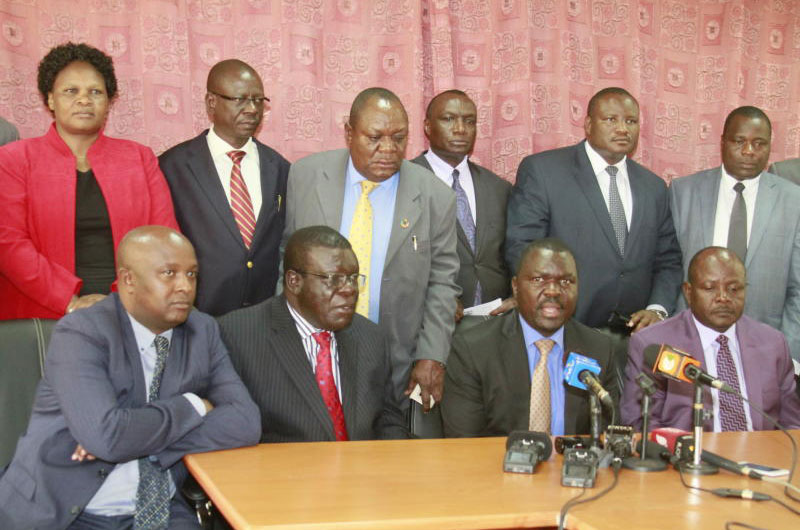×
The Standard e-Paper
Home To Bold Columnists

Western MPs led by from left Geoffrey Otsosi, Ferdinand Wanyonyi, Emmanuel Wangwe and Benjamin Washiali address reporters on the Sugar report. [Boniface Okendo,Standard]
Has Parliament failed on its mandate? That is the question on the minds of many Kenyans. The rejection of the sugar report and the events surrounding it have brought anything but honor to the National Assembly.